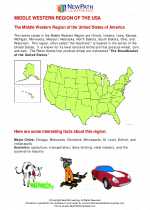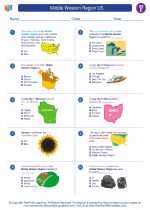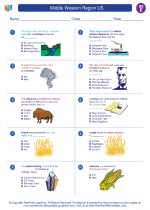Nevada: The Silver State
Nevada is a state located in the western region of the United States. It is known as the "Silver State" due to the significant silver deposits that were discovered and mined in the area during the 19th century. Nevada is also famous for its association with the gambling and entertainment industry, particularly in the city of Las Vegas.
Geography
Nevada is the 7th largest state in the U.S. by land area, covering approximately 110,000 square miles. It is bordered by Oregon and Idaho to the north, Utah to the east, Arizona to the southeast, and California to the west. The state is largely dominated by desert and mountainous regions, with the Sierra Nevada mountain range running along its western border. The state's highest point is Boundary Peak, standing at 13,140 feet above sea level.
History
Nevada became a part of the United States through the 1848 Treaty of Guadalupe Hidalgo at the end of the Mexican-American War. The discovery of silver and other valuable minerals in the mid-19th century led to a rapid influx of settlers and the establishment of mining towns across the state. Nevada gained statehood on October 31, 1864, becoming the 36th state in the Union.
Economy
The economy of Nevada is diverse, with a focus on mining, tourism, and entertainment. The state is one of the leading producers of gold in the country and also has significant deposits of copper, lithium, and other minerals. Tourism is a major industry, driven primarily by the attractions of Las Vegas, which is renowned for its casinos, entertainment venues, and luxury resorts.
Government and Politics
Nevada operates under a state government consisting of three branches: executive, legislative, and judicial. The state's capital is Carson City, and its government is led by a governor. Nevada also has a bicameral legislature, with a Senate and Assembly, responsible for making and passing laws. The state is known for its political significance, particularly in national elections, as it is a swing state with a diverse and influential electorate.
Study Guide
- What is the nickname of Nevada and how did it get this name?
- Identify the states that border Nevada.
- When did Nevada become a state?
- What are the major industries that drive the economy of Nevada?
- What is the capital of Nevada and what are the branches of its government?
◂Social Studies Worksheets and Study Guides Fifth Grade. Middle Western Region US

 Worksheet/Answer key
Worksheet/Answer key
 Worksheet/Answer key
Worksheet/Answer key
 Worksheet/Answer key
Worksheet/Answer key
